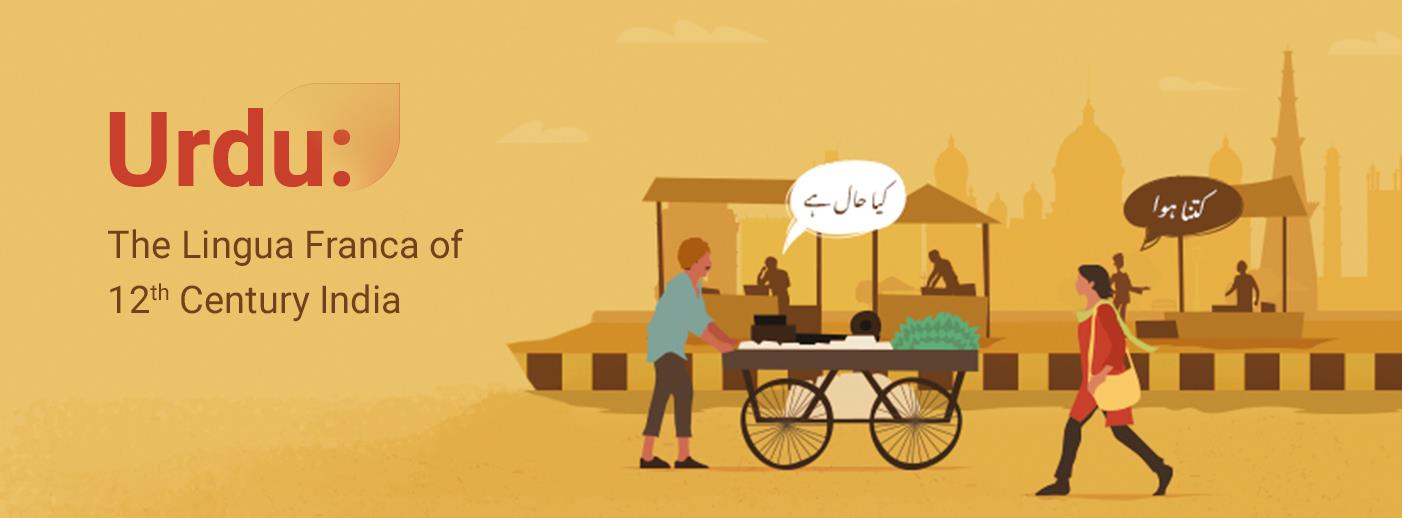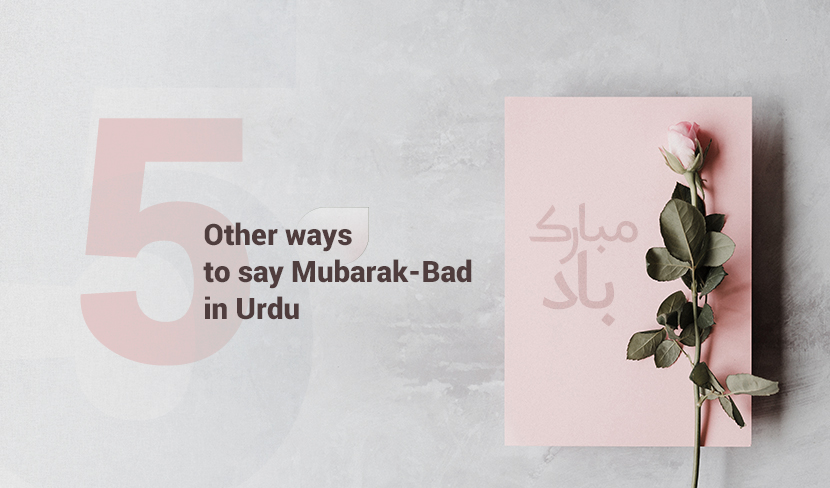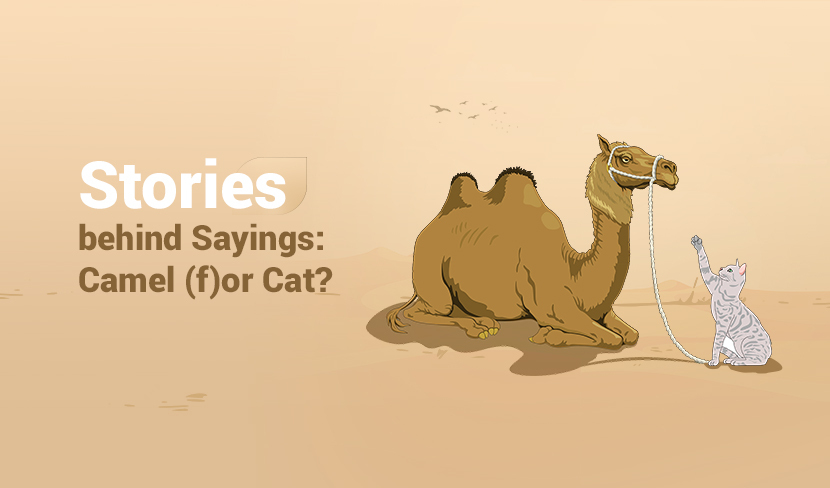زیادہ تلاش کیے گئے الفاظ
محفوظ شدہ الفاظ
کِھسیانی بِلّی کَھمبا نوچے
جسے غصہ آرہا ہو وہ دوسروں پر اپنی جھلاہٹ اتارتا ہے، بے بسی میں آدمی دوسروں پر غصہ اتارتا ہے، شرمندہ شخص دوسروں پر اپنی شرمندگی اتارتا ہے، کمزور کی جھنجھلاہٹ
چَمَنِسْتان
ایسا باغ جہاں پھول کثرت سے ہوں، ایسی جگہ جہاں دور تک پھول ہی پھول اور سبزہ سبزہ نظر آئے، گلزار، گلستان، باغ، پھولوں کا قطعہ، سبز کھیت
Urdu: The Lingua Franca of 12th Century India

Many people are aware of the fact that Urdu originated in northern India and spread across the entire subcontinent henceforth. But very few people know that there was a time when Urdu was the most commonly spoken language in mediaeval India.
Today, we are going to take you to the times when Urdu was barely past its first stage and had developed as what linguists call a ‘Lingua-Franca’. The Cambridge dictionary defines the term Lingua Franca as ‘a language used for communication between groups of people who speak different languages’.
To put it simply, a Lingua Franca is a form of spoken language which is used between people who do not share the same language. Lingua franca consists of words from both sides of the speech communities involved. These words are simplified and used in the most basic sense, so that all involved parties may find ease in communication. Many people are generally taken by surprise when they learn that English is the most common Lingua Franca in the world. Simplified versions of English (mostly in a broken form) with easy vocabulary, are used amongst people who do not share a common language.
Now that you are acquainted with the concept of Lingua Franca, it is time to have a look at the time when Urdu was the Lingua Franca of the Indian subcontinent.
The requirement for a common language between traders and locals gave birth to a new spoken form of language. This language was borrowing words from all the languages that were being spoken in northern India. These included Arabic, Persian, Sanskrit, Punjabi, Turkish and various others.
Arabic, Persian and Turkish were essentially spoken by traders, philosophers, businessmen and royals, who came to India for business, politics and commerce. Since these people did not speak or understand Indian languages, they had to develop a speech mechanism that would enable communication between them and the locals. So, common words from their own languages mixed with common words from the languages of the local people, were combined to form basic sentences. This combination gave birth to a spoken language, which later developed into Urdu.
Once this language of ease came into form, it became the common language. Most people living in the northern parts of India at that time were well acquainted with this newly formed language. People who came from diverse linguistic backgrounds made an effort to learn this language in order to be able to communicate with the masses. This was around the late 9th to the mid 10th century, when this language of ease was starting to become the Lingua Franca of the Indian subcontinent.
But the spread of this Lingua Franca was not limited to people learning it for trade and commerce. The term ‘Urdu’ which is derived from the Turkish form ‘Urdoo’, literally means army troops and army camps. Urdu, the language, gets this name because of how it spread: with army troops. When army men travelled to various parts of the subcontinent, they used this Lingua Franca to communicate with fellows and locals. Owing to its simplified vocabulary, easy structure and words taken from Indian languages, locals could easily adapt to this new language. Apart from army men, ministers, traders, doctors and hakims as well as tutors for the royals also carried Urdu to most parts of India.
Around the end of the 11th century this Lingua Franca had developed into Urdu, with its own structures within grammar and syntax. It had progressed from being just a spoken language of ease to a language with its own vocabulary. Initially, Urdu poetry was known as Rekhta. However, the language got its name 'Urdu' much later in the late 1700s.
By the 12th century, Urdu developed in to a full-fledged language of literature and poetry as well. Ameer Khusrau’s ghazal ‘ze-haal-e-miskin makun taghaful durae nainan banae batiyan’ is the first ever Ghazal written in Rekhta. You can read it here.
So, from being born out of the need for a common spoken language to developing into one of the most poetic languages in the world, Urdu has come a long way. And although there might be a decline in the awareness about this language at present, yet, it cannot be denied that at one point, it was the language of the common people of India. Urdu was the Lingua Franca of India in the 12th century popularised by armies, businessmen, ministers and doctors alike.
Delete 44 saved words?
کیا آپ واقعی ان اندراجات کو حذف کر رہے ہیں؟ انہیں واپس لانا ناممکن ہوگا۔





